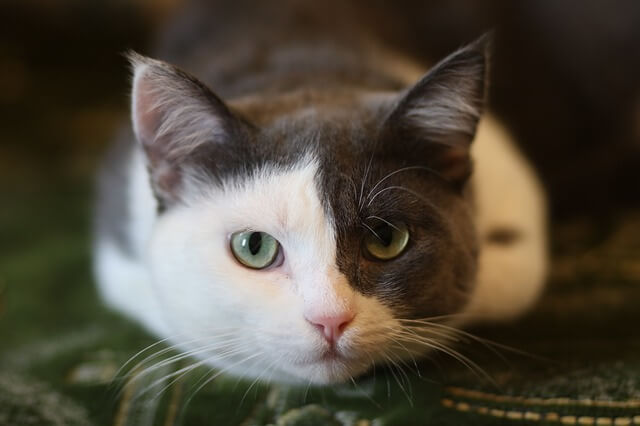Cats are unique creatures, and that’s why we love them! This also means that they exhibit some feline-specific behaviors, so it’s important for us to understand what they’re “telling” us in order to give them the best life possible.
We here at iHeartCats got in touch with Dr. Michel Selmer, DVM, CTCVMP, to answer some questions for us. Also known as “The Caring Vet,” he offers traditional, holistic, integrative medical, surgical, and wellness care to his patients. He’s also the author of The Best of Both Worlds: An Advanced Guide to Integrative Veterinary Care for Happier, Healthier Pups, available on Amazon.
1. Bunting
When cats like something or want it to be known that it’s theirs, they will typically rub their cheeks on it. They are actually marking the item so others may be aware it’s theirs. It keeps other cats aware of what belongs to who.
2. Body language
Some of the ways your cat expresses his/her emotions is by the positioning of the ears, tail, and hair on the back. Is your cat apprehensive, nervous, on-guard, friendly, happy or relaxed? Just look at your cat, he/she is trying to tell you something.
Here are some general signs for a fearful, anxious, stressed cat:
- Eyes: Dilated pupils
- Ears: Out to the side; back against head
- Spine/posture: Back arched; crouched; legs under body
- Tail: Tucked; curled around body; forceful movement, thumping
- Mouth: Open; panting; hissing, growling, spitting
3. Inappropriate elimination
If your cat has changed his/her bathroom habits, it may be a sign of a health or behavior problem. Your cat may be under stress or trying to get your attention to let you know that he/she doesn’t like the type of litter box you’re providing. Or, it may be a sign that your cat is experiencing discomfort. It never hurts to speak to your veterinarian.
4. Hiding
If your cat likes to hide a lot, it may be telling you he/she does not feel safe with what is currently happening. Try to identify the cause to help make your cat feel more comfortable
5. Too much grooming
If your cat is all of a sudden grooming a body part more frequently than usual, it may mean that something hurts there. Just a suggestion: investigate deeper, call your veterinarian

We want to say thank you to Dr. Selmer for taking the time to answer these questions. Learn more about him at www.TheCaringVet.com, and be sure to follow him on Facebook.


